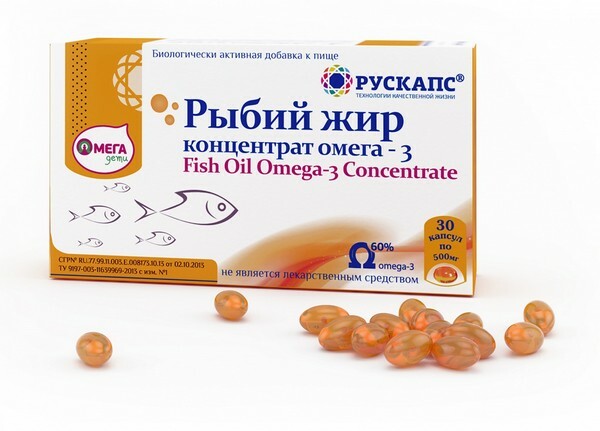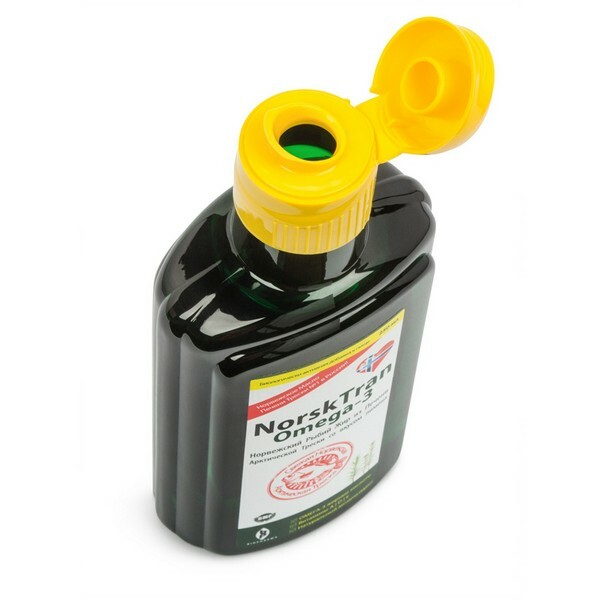Fish oil contains biologically active substances that are easily oxidized in the open air. This feature of the natural product should be taken into account when storing it to avoid a decrease in the therapeutic effectiveness of the capsules and oily liquid. Therefore, it is not necessary to purchase a dietary supplements if it is not expected to be used for several months. The ability of the ingredients to enter into chemical reactions and the natural composition causes a relatively short shelf-life of fish oil.

Features of storage of biologically active additives
Fish oil is a natural product derived from liver and muscle fibers of ocean fish. When it is produced, technological processes that do not involve heat treatment are used. Such techniques ensure the preservation of all biologically active substances, but significantly shorten the shelf life of the medicinal forms of fish oil. Fresh natural product has a thick liquid consistency and a specific smell, which is not liked by all adults and children. But with improper storage, it becomes more unpleasant, rancid.
There are also other signs that allow to determine that the shelf life of fish oil has expired:
- the liquid in the vial is exfoliated or changed color;
- capsules faded, lost their natural luster;The chewing marmalades of
- coalesced;
- in the oily liquid formed a precipitate;
- capsules and chewing marmalade do not restore their shape even with a light touch.
If there is at least one sign of damage to the biologically active additive, it should be immediately discarded, rather than experimenting with your own health.
Warning: Fish oil contains polyunsaturated fatty acids and fat-soluble vitamins. Upon contact with molecular oxygen, it readily enters into oxidation-reduction chemical reactions with it. Formed final and intermediate products can worsen the health of an adult and a baby.

Manufacturer's recommended shelf life
The expiration date indicated on the package changes immediately after opening the vial with capsules or liquid. There is contact with open air and oxygen contained in it. The term does not change only for capsules, each of which is packaged in blisters of metallized foil with individual cells. How to store fish oil in other dosage forms is indicated in the instructions for use.
Recommendation: The shelf life of dietary supplements in capsules is much higher than that of a liquid dosage form. Long-term storage provides a strong gelatin shell, which protects fish oil from oxidation.

Capsules
Due to the strong shell, fish oil capsules do not require special storage conditions. It is necessary to keep the biologically active additive at a temperature of about 25 ° C.Exceeding this value will cause softening of the capsule and oxidation of polyunsaturated fatty acids. The gelatinous shell will harden and lose its protective functions.
How to store fish oil in capsules:
- on the packaging must not fall direct solar path, harmful to fat-soluble vitamins;
- should not be used to store fish oil at a low temperature, for example, in the side wall of the refrigerator.
Recommendation: Chewing capsules stick together when stored in a sunlit place, even at low temperatures. The best thing is to keep them in a closet with wooden or plastic doors.
Thick liquid
Fish oil in a liquid dosage form is to be stored only at a low temperature. Its values vary depending on the manufacturer, but rarely exceed 12 ° C.The shelf life of the biologically active additive is about a year, but it is reduced to 2-3 months immediately after opening the hermetic vial. At each dispensing of BAA, air enters the glass container, triggering oxidation processes.
Liquid fish oil should be stored in a place protected from sunlight, since they act as catalysts for chemical reactions. Manufacturers allow a slight thickening of the natural product, which in no way affects its therapeutic properties.
